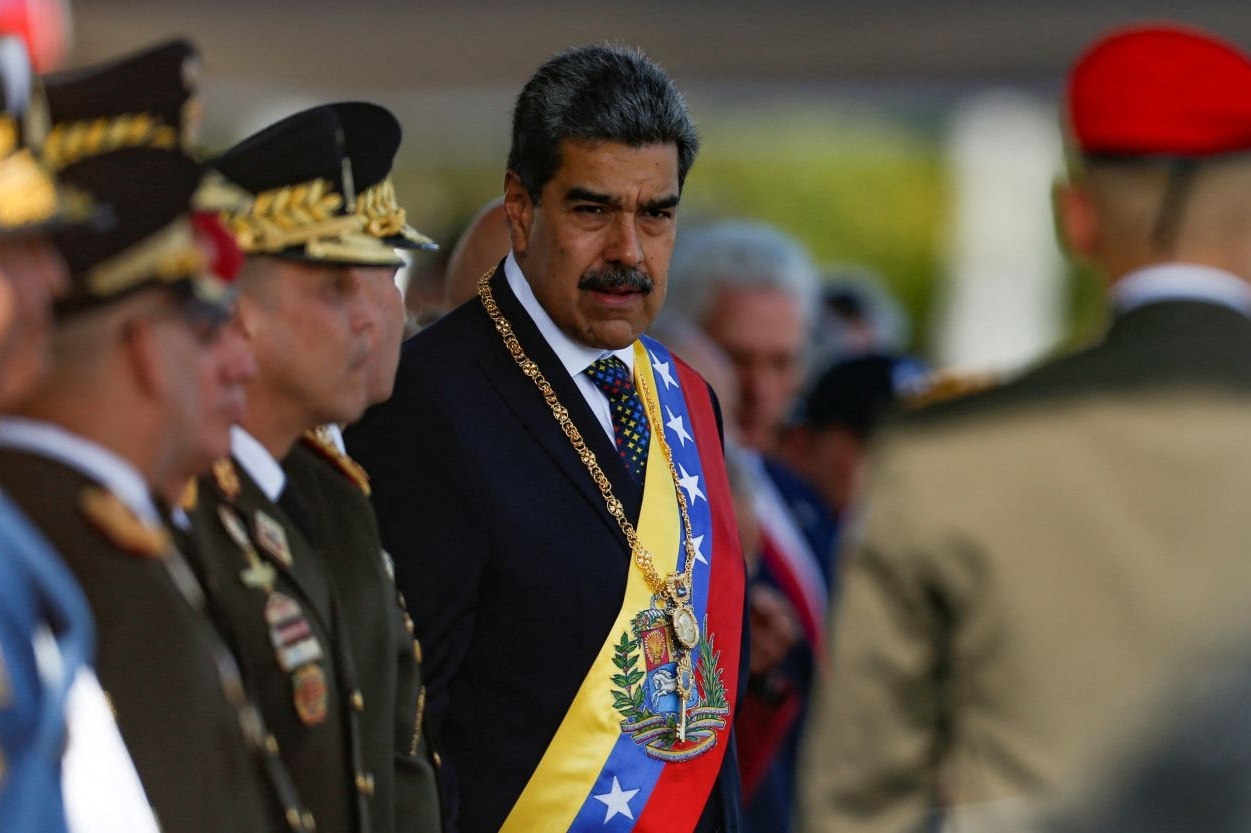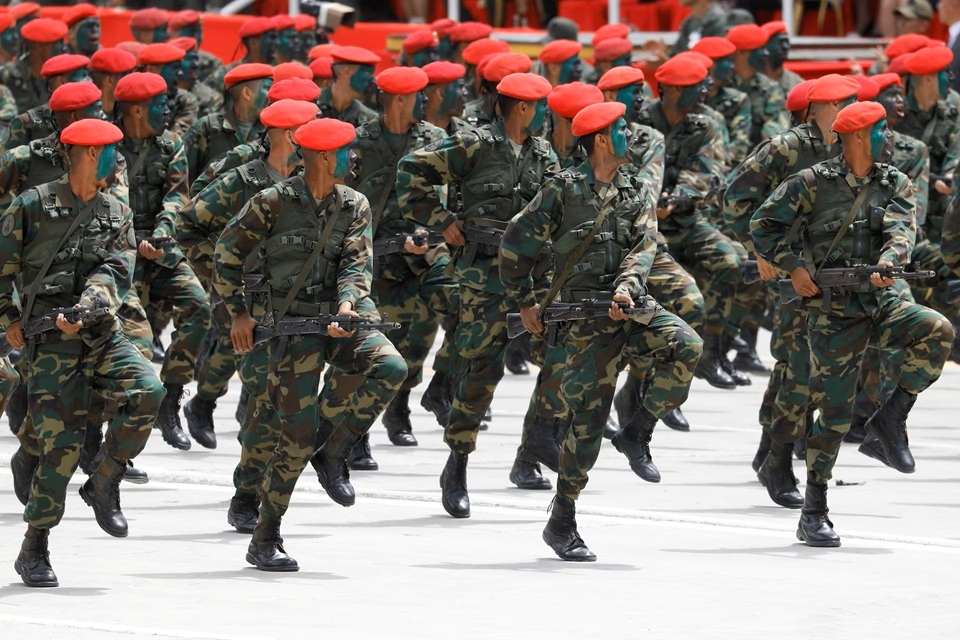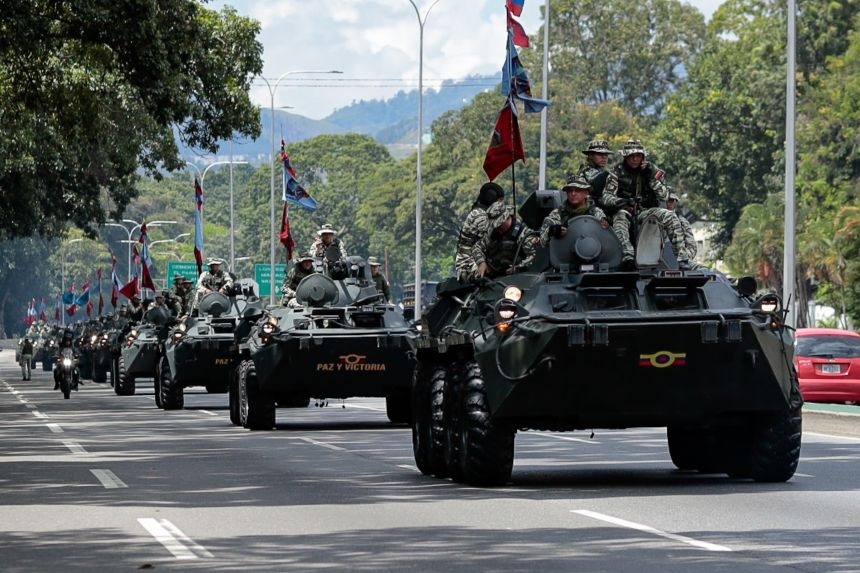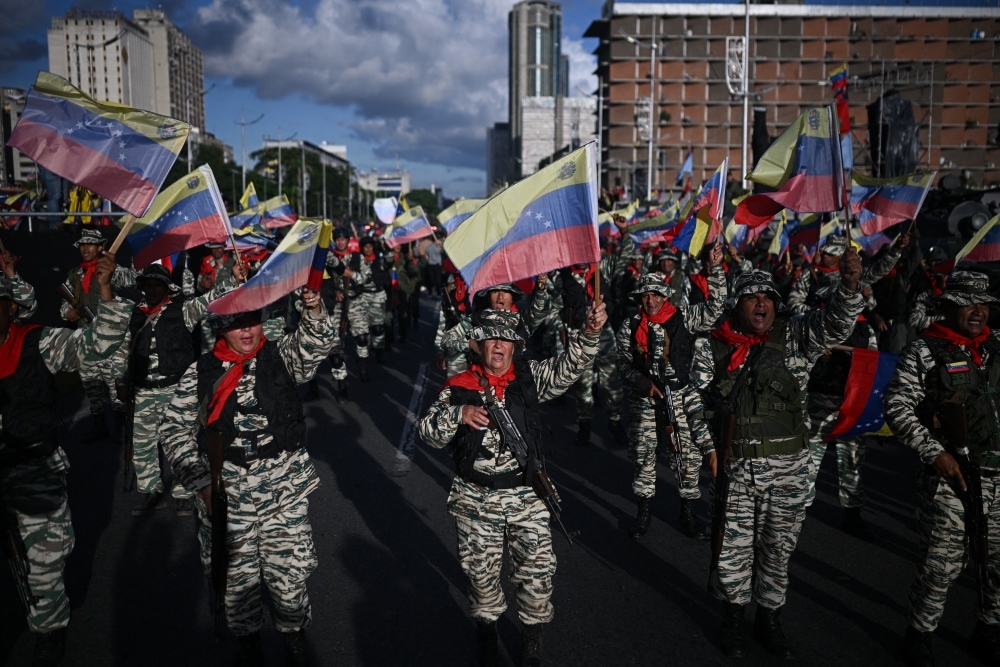Post-Maduro Venezuela: A Paradise for Radicals and a Hell for American Democracy
TEHRAN (Defapress) - In light of Donald Trump’s increasing threats against the Venezuelan government, the debate over the dire consequences of a military strike to remove and remove President Nicolas Maduro has reached a peak. Believing that Maduro’s days as president of Venezuela are coming to an end, Trump has raised military options, including ground strikes, and has even deployed a naval fleet and military forces to the region. But experts believe that such a move would not only be counterproductive but would also trigger a chain of domestic and international crises that could undermine Latin American stability for years to come.

Venezuela’s Domestic Challenges After the US Invasion
As the symbol of the Chavism ideology inspired by Hugo Chavez, Maduro plays a key role in maintaining a balance between the various political and military factions. He has ensured relative stability in Venezuela by managing internal rivalries between civilians and military officers. Experts such as Juan Gonzalez, a fellow at the Georgetown Institute of the Americas, warn that removing Maduro could open the door to the emergence of more radical Chavism figures, rather than improving the situation.
With the support of the military, these individuals could seize power and push the country towards a more authoritarian regime. Maduro himself has said that without him, things will get worse, a statement that reflects the reality that he acts as a moderate force among the Chavists.

In addition, the country is threatened by the risk of a military coup or a complete collapse of the power structure. John Bolton, Trump’s former national security adviser, insists that the Venezuelan military remains cohesive and that in the event of a crisis against Maduro, it will not only not collapse, but will tighten its military control and suppress any street protests against the regime.
Maduro has carefully managed unhealthy rivalries among internal groups and even kept foreign groups, such as Colombian rebels or criminal networks linked to the mineral trade, in check. If he were removed from power in Venezuela, these forces could drag the country into civil war.
A Western diplomat who has worked in Venezuela for years describes Maduro as a “guarantor of balance,” saying that without him, no one can maintain the status quo and that all factions have gathered around him to protect their interests. Such a scenario could lead to armed conflict and the activity of militia groups such as the Colectivos (a pro-government group), the National Liberation Army of Colombia (ELN), and intensifying internal chaos.

Maduro’s opponents are heavily dependent on US support
On the other hand, Maduro’s opponent Edmundo Gonzalez, who ran in last year’s elections and is now in Spain, or Maria Corina Machado, who is in hiding, claim to have a 100-hour plan for the transition of power. But experts believe that these plans are not feasible without broad and long-term US support.
Gonzalez says that ensuring the security and sovereignty of Maduro’s opponents is impossible without the presence of American forces, and that support should include rebuilding the military, freeing up state assets, and training the police. However, Trump, who came to power on a promise to avoid costly foreign conflicts, may not be willing to make a long-term commitment.
A Republican congressional expert warns that the American people did not elect Trump to enter a sustained conflict in Latin America, so Maduro’s opponents will fail in their bid to take power without American support. This could lead to a failed government, where the opposition faces not only the military but also armed groups loyal to Maduro and his Chavism ideology.

International consequences of an invasion of Venezuela
The Maduro regime is supported by countries that have made huge investments in Venezuela, namely Russia, China, and Cuba. If the US attacks and damages their assets, the conflict could escalate on a larger scale. Although these powers are unlikely to send in troops, they will use their means to thwart US efforts, as they did in 2019 to suppress the Cuban coup.
In addition, Maduro could respond to US aggression by attacking US assets, such as oil rigs in the Caribbean, which would directly threaten US interests. Henry Zimmer, an expert at the Center for Strategic and International Studies, sees this possibility as a dangerous gamble that could plunge the region into chaos.
It should be said that such aggression could have a high cost for Trump. Former State Department official Elliott Abrams says that if Trump backs down, America’s supremacy in the Western Hemisphere will be called into question. But even if a decisive attack is carried out, there will need to be support for a political solution for five to 10 years; otherwise, everything will collapse. According to one regional diplomat, any military invasion must be accompanied by political solutions and should not be viewed in a short-term and superficial way.
Ultimately, removing Maduro would not only be illogical but also a grave strategic mistake. As the main axis of balance in Venezuela’s complex political and military structure, he plays an irreplaceable role, and there is no alternative to him among the opposition. Any US attempt to remove him through military aggression would, instead of resolving the crisis, lead the country towards complete collapse, a bloody civil war, and the emergence of more radical rulers.
In this scenario, the US would incur enormous military and human costs, lose its international credibility, and face heightened tensions with Russia, China, and Cuba. All while ultimately creating a failed state in its neighborhood, which would lead to a wave of immigration, smuggling, and instability in its own country.
